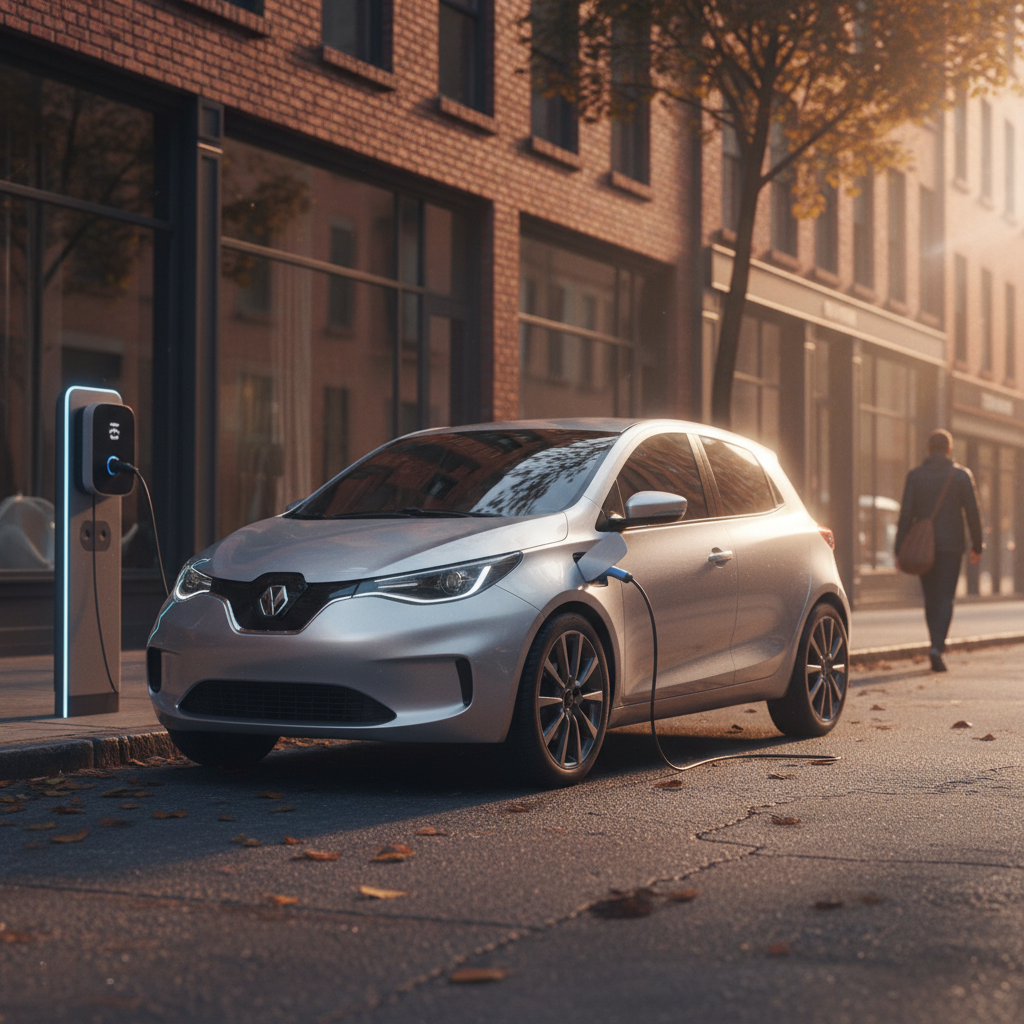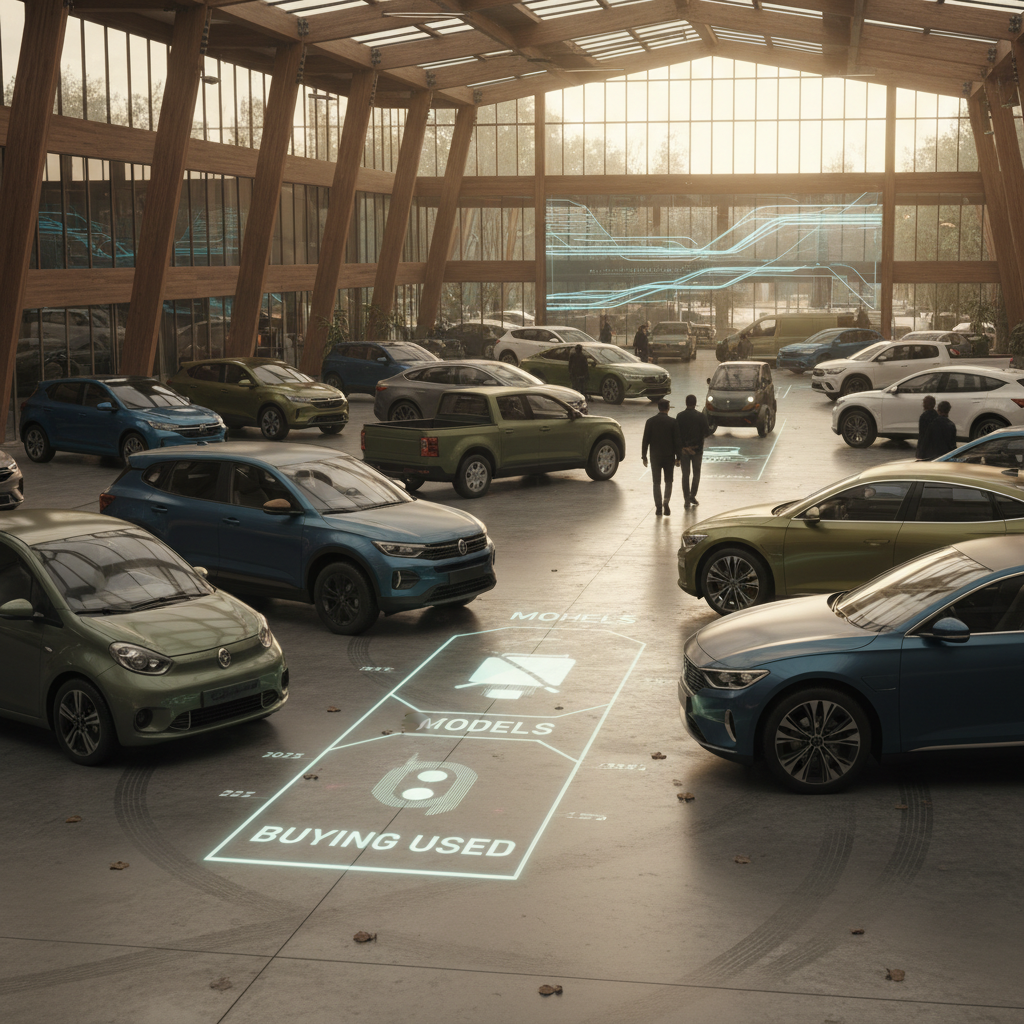If you’re eyeing a Volkswagen electric car in 2025, you’re probably trying to decode a simple question that isn’t actually simple at all: what does a VW EV really cost – on the window sticker, after incentives, and in the used market? This guide breaks down current Volkswagen electric car prices in the U.S., from the ID.4 SUV to the retro-cool ID. Buzz van, plus what’s coming next and how to keep costs in check.
Quick VW EV price snapshot (2025, U.S.)
Which Volkswagen Electric Cars Are Available in 2025?
Volkswagen’s U.S. electric lineup is still compact compared with some rivals, but it’s growing. As of late 2025, shoppers here mainly see two battery-electric VWs on their radar:
- ID.4 – Compact electric SUV built in North America, Volkswagen’s volume EV for the U.S.
- ID. Buzz – Long-wheelbase, three-row electric van channeling the classic VW Microbus, just arriving in U.S. showrooms.
- ID.7 – A large electric sedan that VW previewed for the U.S. market; pricing estimates exist, but full launch timing and final numbers are still shaking out.
Name changes are coming

2025 VW ID.4 Price: America’s Mainstream VW EV
The Volkswagen ID.4 is the brand’s workhorse electric SUV in the U.S. It competes with models like the Hyundai Ioniq 5, Kia EV6, and Tesla Model Y, and it’s the VW EV you’re most likely to see on your local dealer’s lot.
2025 Volkswagen ID.4 pricing at a glance (MSRP)
Exact window-sticker numbers vary by trim and options, but for 2025 you can roughly expect:
2025 VW ID.4: Typical MSRP Range by Trim
Approximate manufacturer’s suggested retail prices for 2025 ID.4 trims in the U.S. These figures exclude destination charges, taxes, and dealer fees.
| Trim (2025) | Drivetrain | Approx. MSRP (before destination) |
|---|---|---|
| ID.4 Limited | RWD | Low $40,000s |
| ID.4 Pro | RWD | Mid $40,000s |
| ID.4 AWD Pro | AWD | Around $50,000 |
| ID.4 Pro S | RWD | Low $50,000s |
| ID.4 AWD Pro S / Pro S Plus | AWD | Mid–high $50,000s |
Always check your local dealer or VW’s build-and-price tool for current official pricing.
Watch the tax credit on ID.4
How ID.4 pricing stacks up
In real-world deals, an ID.4 often undercuts a comparably equipped Tesla Model Y and can be competitive with Hyundai and Kia rivals once federal and state incentives are factored in.
- Pros: Eligible incentives, practical cabin, familiar VW feel.
- Cons: Software and charging-network perception still lag Tesla for some shoppers.
Who the ID.4 is priced for
Price-wise, VW is targeting buyers moving out of compact crossovers like the Tiguan, RAV4, or CR-V. If you’re comfortable around $450–$750/month on a typical 60–72 month loan, the ID.4 is squarely in play, especially if you leverage tax credits or strong lease programs.
VW ID. Buzz Price: The Most Expensive Volkswagen in the U.S.
If the ID.4 is Volkswagen’s volume EV, the ID. Buzz is its statement piece. It’s a three-row, long-wheelbase electric van with throwback styling and a price tag that now makes it the most expensive Volkswagen model in America.
2025 Volkswagen ID. Buzz pricing (U.S.)
2025 VW ID. Buzz: Trim-Level Pricing (U.S.)
Officially announced MSRPs for the U.S.-spec 2025 ID. Buzz long‑wheelbase van.
| Trim | Drivetrain | Approx. MSRP (incl. destination) |
|---|---|---|
| ID. Buzz Pro S | RWD | ~$61,545 |
| ID. Buzz Pro S Plus | RWD | ~$65,045 |
| ID. Buzz Pro S Plus 4Motion | AWD | ~$69,545 |
| ID. Buzz 1st Edition | RWD | ~$67,045 |
| ID. Buzz 1st Edition 4Motion | AWD | ~$71,545 |
Destination charges (roughly $1,550) are included in the right-hand column.
Why the ID. Buzz is priced like this
For shoppers, the practical takeaway is that stepping into a new ID. Buzz means budgeting roughly $62,000–$72,000 before any dealer mark‑ups or add‑ons. That’s a notable jump from even well‑equipped ID.4 models, but in line with other three‑row EVs once you factor in equipment and image.
What About Future VW EVs Like the ID.7 and Low-Cost Models?
You may have heard about other VW EVs, especially the ID.7 sedan and talk of sub-$30,000 electric Volkswagens. Here’s how those fit into the price picture, with the caveat that plans and timing are still in motion as of late 2025.
Upcoming Volkswagen EVs and Price Expectations
Estimates based on VW announcements and early reporting; U.S. details can change before launch.
ID.7 electric sedan
VW’s large electric sedan is expected to slot above the ID.4.
- Estimated U.S. starting price: mid‑$40,000s to around $50,000.
- Targeting shoppers who might also consider a Tesla Model 3 or Mercedes EQE.
Future low-cost VW EVs
In Europe, Volkswagen has openly discussed compact EVs around €20,000–€25,000.
Those vehicles are planned for European plants and could eventually influence U.S. pricing, but don’t expect a $20,000 VW EV on U.S. lots before the later 2020s at best.
Global strategy vs. U.S. reality
VW is trying to balance global cost-cutting with the higher build and compliance costs of U.S. vehicles.
Result: you’ll likely see value‑oriented EVs in Europe first, while U.S. models focus on higher‑margin crossovers and vans like the ID.4 and ID. Buzz.
Treat future VW EV prices as moving targets
From Sticker to Driveway: What VW EVs Really Cost
MSRP is just the starting point. The real Volkswagen electric car price you pay depends on destination charges, taxes, dealer fees, incentives, and financing. Here’s how a typical new VW EV deal pencils out in 2025.
Typical cost add-ons
- Destination charge: About $1,300–$1,600 on most new VW EVs.
- Dealer fees: Documentation, processing and other fees can easily add a few hundred dollars.
- Taxes & registration: Vary by state and locality; sales tax alone can add several thousand dollars on a $50,000+ vehicle.
- Add‑ons: Extended warranties, paint protection and other extras can quietly inflate the bottom line.
Savings that reduce your real cost
- Federal EV tax credit: Many ID.4s qualify; the ID. Buzz’s status can depend on final assembly and battery content rules.
- State/local incentives: Rebates or tax credits in some states can lop off another $1,000–$5,000.
- Fuel savings: Electricity is typically cheaper per mile than gasoline, especially if you can charge at home on off‑peak rates.
- Maintenance savings: No oil changes, fewer moving parts, and less routine service than a comparable gas VW.
Run the full 5-year cost, not just the sticker
New vs. Used Volkswagen Electric Car Prices
Not everyone wants to pay new‑car money, especially when EV tech is evolving quickly. The used market is where VW electric prices can get interesting – and where the details really matter.

Used VW EV price patterns
- Early ID.4 models: First‑generation examples with higher mileage often list well below comparable new IDs, sometimes in the mid‑$20,000s to low‑$30,000s depending on condition and market.
- Lightly used ID.4s: One‑ to two‑year‑old models with lower miles typically command prices somewhere between new‑car transaction prices and those high‑mileage bargains.
- ID. Buzz (future used market): As a premium, relatively scarce model, expect resale prices to stay firm in the first few years, especially on special trims.
Why battery health matters more than mileage
With used EVs, two ID.4s with similar mileage can have very different real‑world range if their batteries were treated differently. Frequent fast‑charging, always charging to 100%, and extreme climates can accelerate degradation.
That’s why a transparent, data‑driven battery report is crucial when you’re comparing used VW EV prices.
How Recharged changes the used EV math
How Recharged Helps You Shop VW EVs Smarter
Recharged is built around one idea: used EVs shouldn’t feel mysterious. That’s especially true with brands like Volkswagen, where early‑run software updates, charging habits, and battery care can all affect what a car is truly worth.
What Recharged offers VW EV shoppers
From pricing transparency to logistics, Recharged is designed for modern EV ownership.
Fair market pricing
Each EV is priced against current market data, so you can see how a used ID.4 or other VW EV compares to similar listings nationwide.
Battery health you can trust
The Recharged Score uses battery diagnostics to show you expected range and degradation, crucial information when you’re comparing used Volkswagen electric car prices.
Nationwide, digital-first buying
From online shopping to financing, trade‑in options, consignment, and nationwide delivery, Recharged handles the logistics so you can focus on choosing the right EV.
If you’re looking at a Volkswagen EV but don’t see the exact ID.4 or other model you want yet, you can still talk with a Recharged EV specialist. They can walk you through how VW EV pricing compares to other brands and what kind of payment to expect for your budget.
Price Checklist: Getting the Best Deal on a VW Electric
Volkswagen EV price checklist
1. Decide on body style first
Figure out whether the ID.4’s compact SUV footprint fits your life or whether you truly need the three‑row space (and bigger price tag) of an ID. Buzz.
2. Research real MSRPs and incentives
Use VW’s site and trusted pricing guides to see current MSRPs and estimated transaction prices. Then confirm which trims actually qualify for the federal EV tax credit and any state incentives.
3. Compare new vs. used monthly payments
Ask your lender or marketplace to quote both a new ID.4 and a comparable used one. Lower upfront price doesn’t always mean the lower monthly payment once incentives and interest rates are factored in.
4. Look at charging costs where you live
Check your local electricity rates and available home charging options. A cheap public fast‑charging plan or a good off‑peak home rate can tilt the math in favor of an EV even at a higher sticker price.
5. Get objective battery health data on used EVs
Insist on a detailed battery health report, not just a “looks fine” note on the buyer’s order. With Recharged, that’s baked into the Recharged Score Report.
6. Factor in resale and model updates
If you tend to keep cars only 2–4 years, consider how new VW EV models or nameplate changes could affect resale. That may influence whether you buy or lease.
Volkswagen Electric Car Price: FAQ
Frequently asked questions about Volkswagen EV prices
Volkswagen’s electric lineup may be smaller than some rivals, but it spans a wide price band: from relatively approachable ID.4 SUVs to the premium‑priced, three‑row ID. Buzz. The right move for you depends less on the headline MSRP and more on incentives, charging access, and how long you plan to keep the vehicle. If you’re exploring used VW EVs, platforms like Recharged that put battery health and fair pricing front and center can turn what feels like a gamble into a confident, data‑driven purchase.



